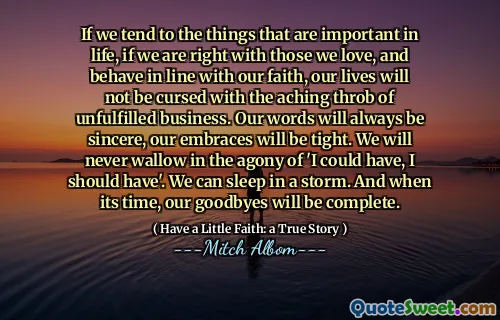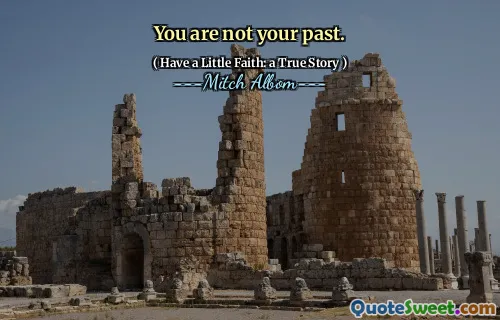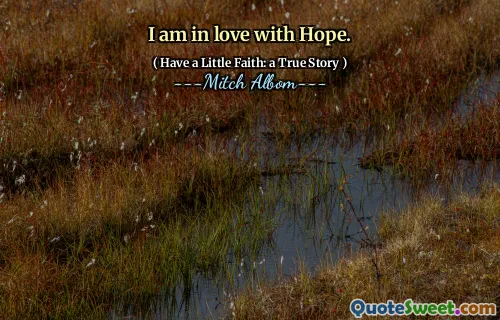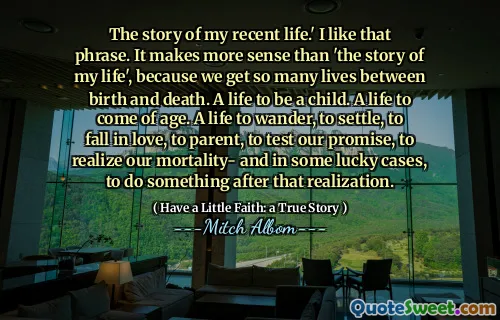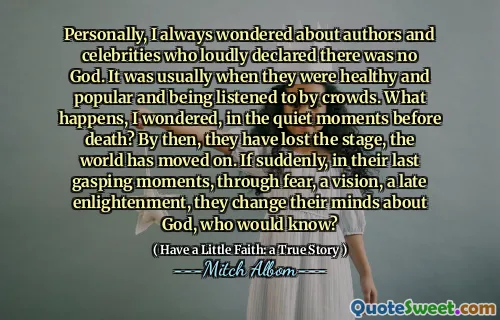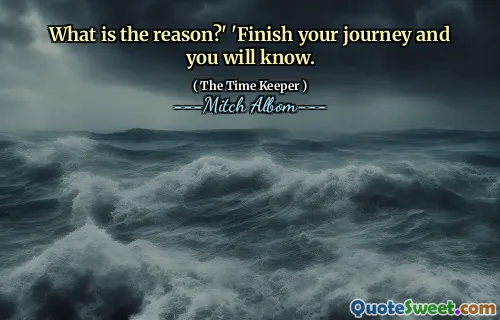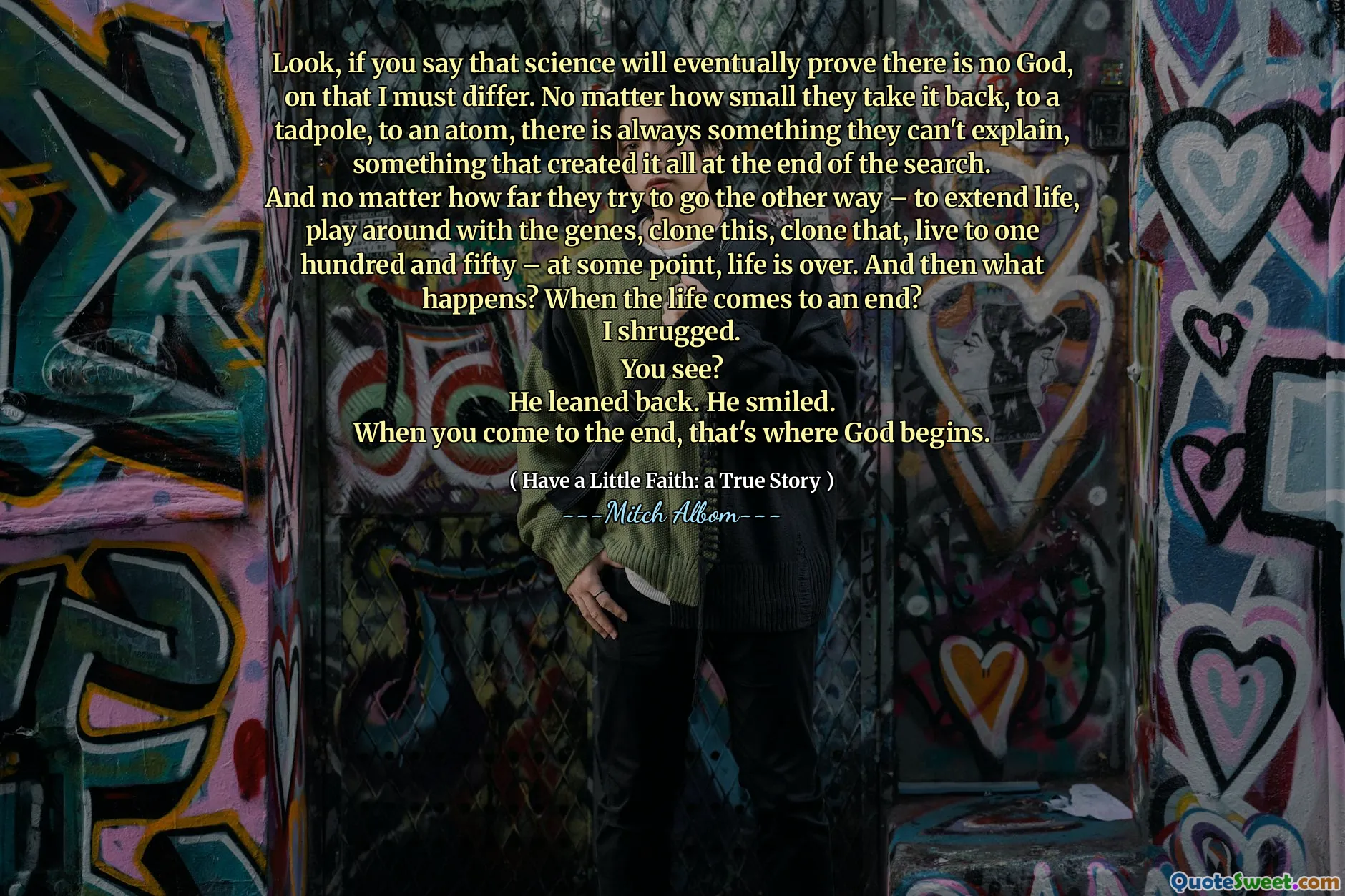
看,如果您说科学最终将证明没有上帝,那我必须有所不同。无论他们将其带回到t,到原子上,总会有一些无法解释的东西,在搜索结束时创造了一切。 无论他们试图走多远 - 延长生命,与基因一起玩耍,克隆这个,克隆,活到一百五十 - 在某个时候,生活已经结束。那会发生什么呢?当生命结束时? 我耸了耸肩。 你看? 他向后倾斜。他笑了。 当您走到尽头时,这就是上帝开始的地方。
(Look, if you say that science will eventually prove there is no God, on that I must differ. No matter how small they take it back, to a tadpole, to an atom, there is always something they can't explain, something that created it all at the end of the search. And no matter how far they try to go the other way – to extend life, play around with the genes, clone this, clone that, live to one hundred and fifty – at some point, life is over. And then what happens? When the life comes to an end? I shrugged. You see? He leaned back. He smiled. When you come to the end, that's where God begins.)
讨论突出了关于科学和上帝存在的观点的分歧。一种观点认为,无论科学多么深刻的探索生命的运作方式,无论是探索t或原子的细节 - 仍然是一个无法解释的元素,暗示了这一切背后的创造者。这种信念强调,科学不能充分说明一切,为神圣存在的概念留出空间。
此外,对话反映了延长生命的科学进步的局限性。尽管努力操纵遗传学并实现长寿,但生活不可避免地逐渐结束。这种必然性引发了人们对死亡之外的事物的疑问,这导致了这样的论点,即对来世的探索也许为上帝的存在提供了一个空间。因此,生命的终结可能标志着信仰和灵性的开始。
